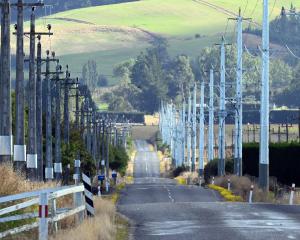The claim by some Maori for ownership of fresh water cannot stand, regardless of any Waitangi Tribunal ruling.
Maori especially understand the principle of communal ownership and that nobody owns a public resource shared in common. Even feral pigs or deer on private or public land are not "owned" until the hunter bags the animal.
Ownership then applies to the resource (pig/deer/water) but not unless or until the point of "capture".
Water is a prime example of an unowned, uncontrolled public asset, held "in common" until the point of "capture", whether by a dam, diversion race, water pipe or some other device that denotes possession.
Maori claimants appear to base their claim to all fresh water based on the age-old method of establishing a property right, namely "first possession".
The ancients believed those things which belong to no-one became the property of the first taker.
Indeed, "first possession" has been widely applied in both common and statute law.
The expression "first come, first served" is accepted as a fair basis of allocation of a particular (unclaimed) resource.
The same principle applies to a "first on, last off" basis to employment.
That simple distribution of an unallocated (property) right to any public resource has existed and worked for years where competing interests do not exist.
With a commercial value soon to be placed on fresh water, the claims to ownership of water for rent-seeking purposes as distinct from payment for use has given rise to the Maori and Green parties seeking to apply a commercial value to water, something that until recently they thought offensive.
The incentive to apply financial and political values to manage rivers for shorter-term private, financial and political reasons versus the longer-term wider public good is obvious.
The reason Maori claimants have no basis to demand ownership of water is that for the first possession rationale to stand they must have first demonstrated possession, continuing use and indeed control.
Possession is vital to any claim of ownership.
This has simply not occurred.
Maori have failed to show any ongoing relationship beyond that of expressing their respect and understanding of the life-giving qualities of water.
That belief is not unique to any race, let alone Maori.
There will be no net gain to society from redistribution of ownership of water (other than a political gain) should a decision be made by the Key Government to acquiesce to this demand. Maori claimants to fresh water are not correct in their assertion they have historically owned fresh water.
They have not shown activity consistent with continuous ownership from the time of "first possession".
Nor have they demonstrated defence/enforcement or intent of the claim to water.
The occasional visit or use is no different from any other association anyone can exercise with impunity.
The courts must recognise "first possession" rights of the Crown on behalf of all New Zealanders.
Only the Crown has fully exercised defence of fresh water by a delegated system of permitted use rights.
It is those permitted use rights that have allowed the fixed assets associated with water such as dams, intake races, bores etc to be developed for both private and public benefit.
Are Maori claimants seeking to acquire these assets as well or is it merely the rental capacity that is sought under this claim?
The claimants would be able to extract any price from the electricity-generating plants on the rivers as well as seeking a rental from all other users, including town water supply where applicable.
We now have a rather perverse situation where Maori claimants want to privatise fresh water but are totally opposed to the Crown selling/privatising assets.
Maori claimants must explain what they intend to do with (their) flood waters which inundate private property.
Currently, floods are referred to as an act of God so that no public agency can be assigned responsibility for damage done by this public resource.
That cannot be the case when rent is achieved by the "owner" from the beneficial use of water but is exonerated of all responsibility during a flood event.
The ownership of fresh water is an issue that will define the Key Government. Mr Key has yet to learn how to say no in unequivocal terms.
Mr Key's choice is to decide whether to write to a sentinel page in our history or be assigned to the footnotes of expediency.
• Gerrard Eckhoff, of Alexandra, is an Otago regional councillor and a former Act New Zealand member of Parliament.











